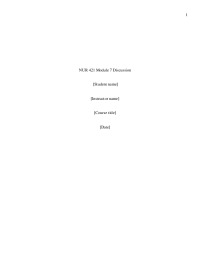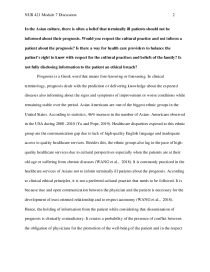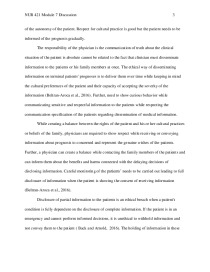Terminally Ill Patient Informing About Disease And Their Prognosis



In the Asian culture, there is often a belief that terminally ill patients should not be informed about . Would you respect the cultural practice and not inform a patient about the prognosis? Is there a way for health care providers to balance the patient’s right to know with respect for the cultural practices and beliefs of the family? Is not fully disclosing information to the patient an ethical breach?
Prognosis is a Greek word that means fore-knowing or foreseeing. In clinical terminology, prognosis deals with the prediction or delivering knowledge about the expected diseases also informing about the signs and symptoms of improvement or worse conditions while remaining stable over the period. Asian Americans are one of the biggest ethnic groups in the United States. According to statistics, 46% increase in the number of Asian- Americans observed in the USA during 2000 -2010 (Yu and Pope, 2019). Healthcare disparities exposed to this ethnic group are the communication gap due to lack of high-quality English language and inadequate access to quality healthcare services. Besides this, the ethnic groups also lag in the pace of high-quality healthcare services due to cultural perspectives especially when the patients are at their old age or suffering from chronic diseases (WANG et al., 2018). It is commonly practiced in the healthcare services of Asians not to inform terminally ill patients about the prognosis. According to clinical ethical principles, it is not a preferred cultural practice that needs to be followed. It is because true and open communication between the physician and the patient is necessary for the development of trust oriented relationship and to respect autonomy (WANG et al., 2018). Hence, the holding of information from the patient while considering that dissemination of prognosis is clinically contradictory. It creates a probability of the presence of conflict between the obligation of physicians for the promotion of the well-being of the patient and in the respect of the autonomy of the patient. Respect for cultural practice is good but the patient needs to be informed of the prognosis gradually.

















